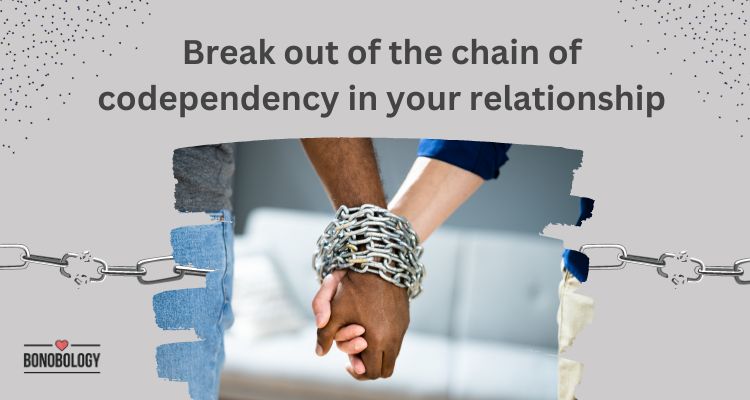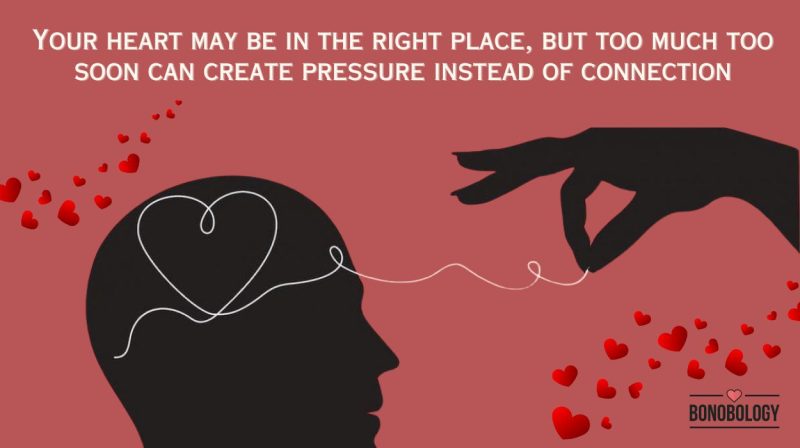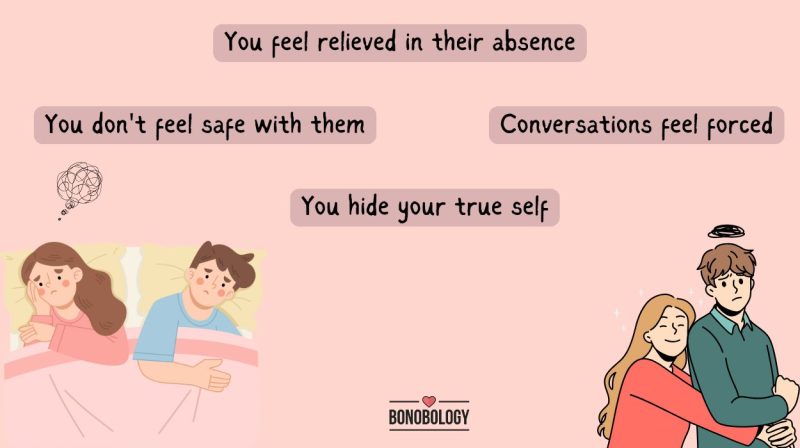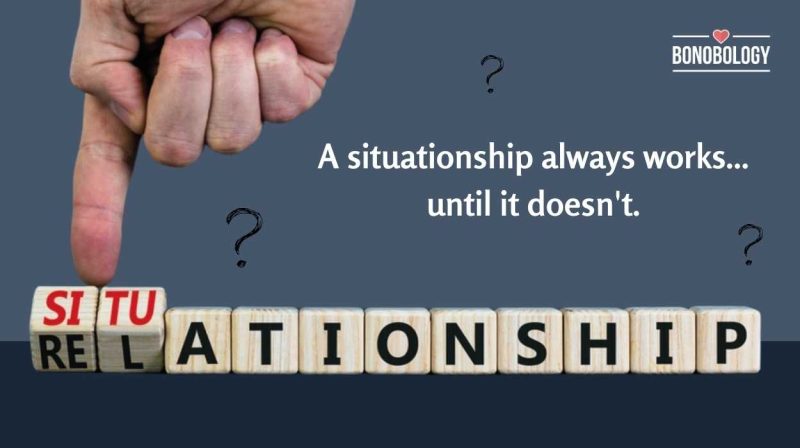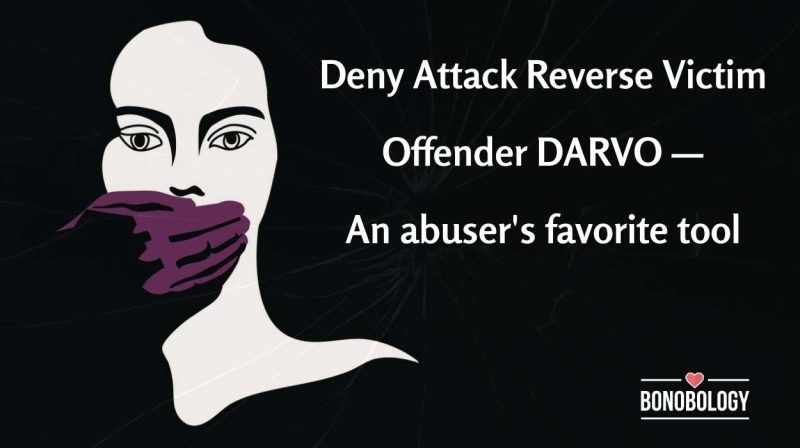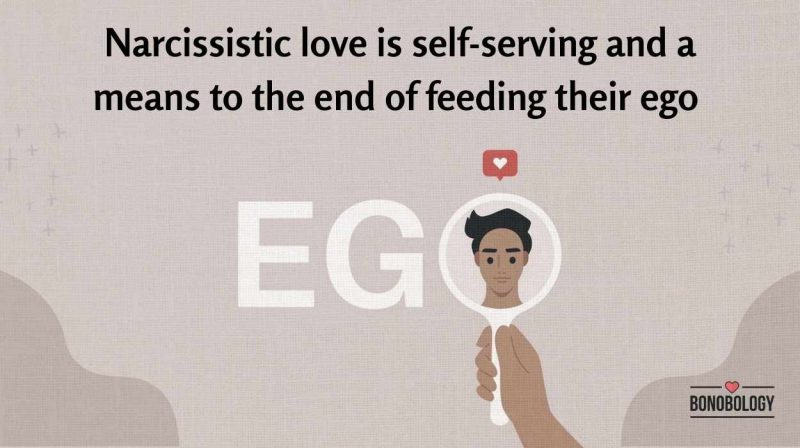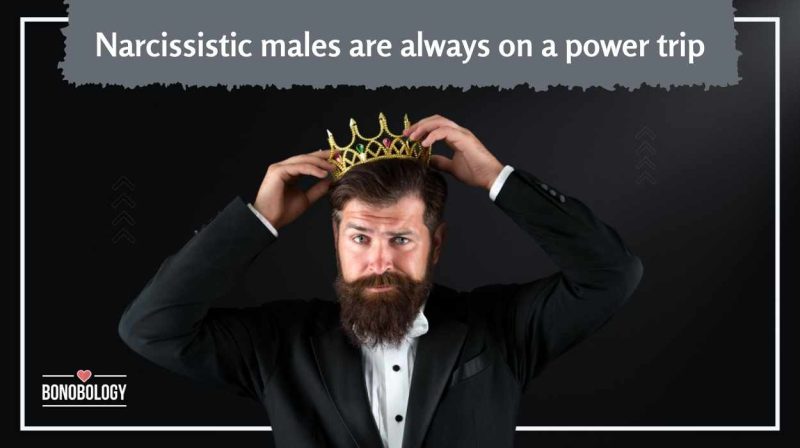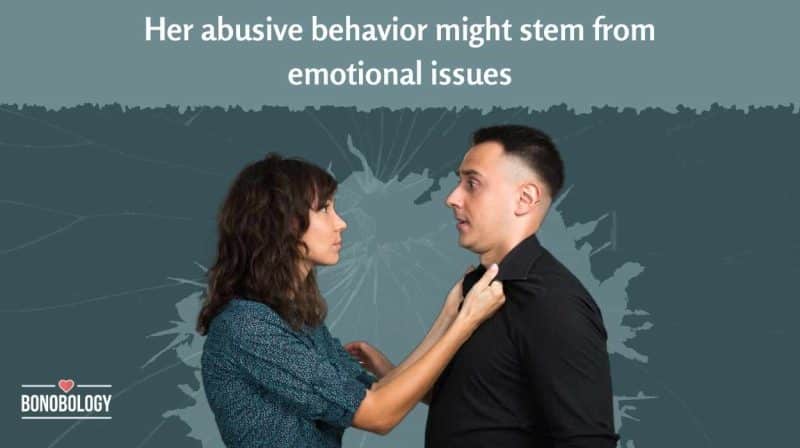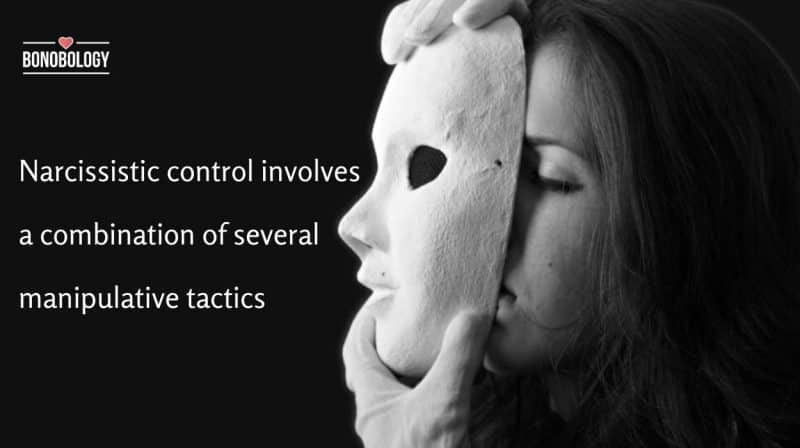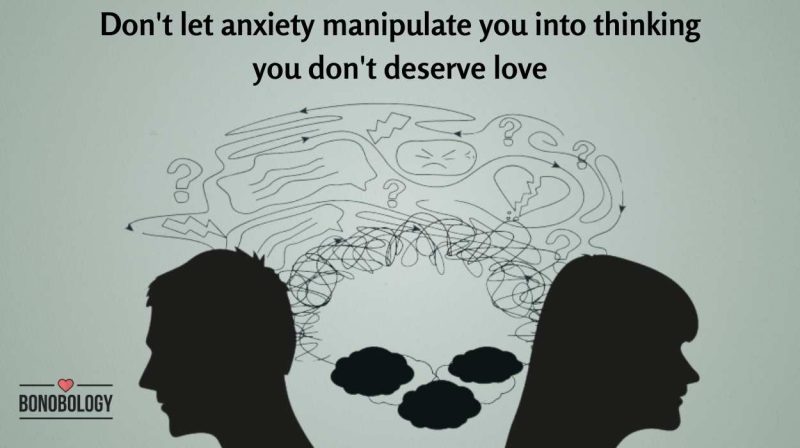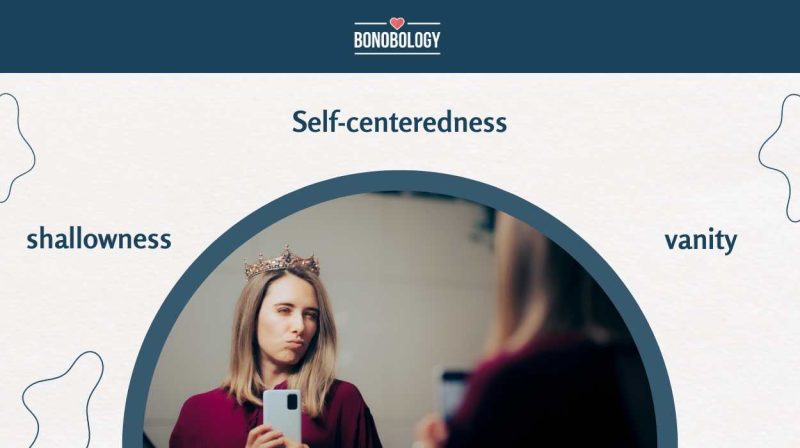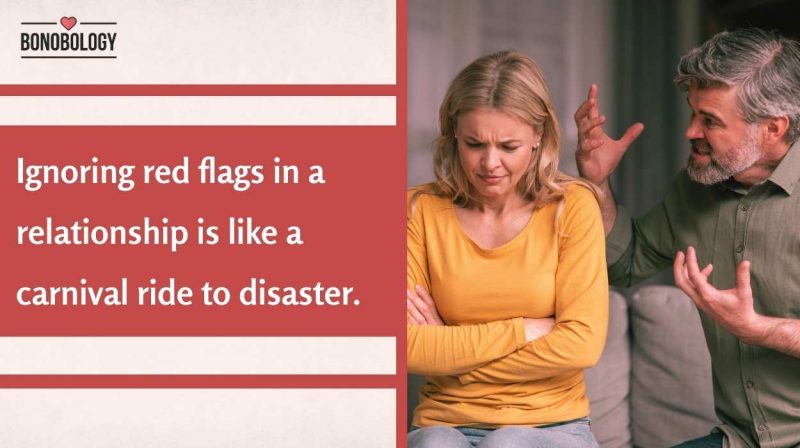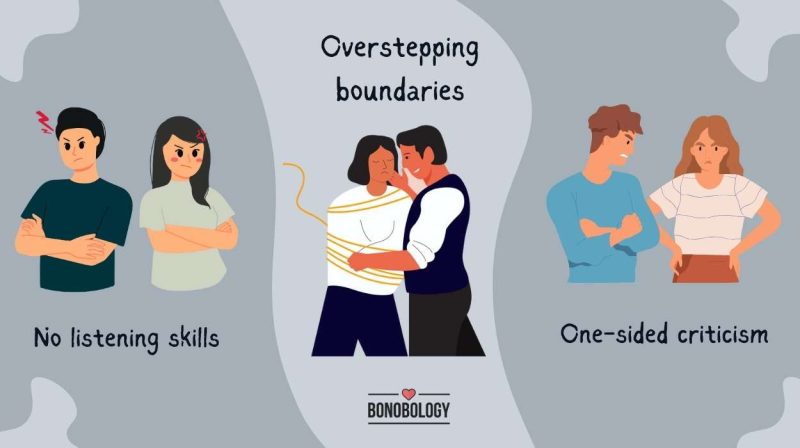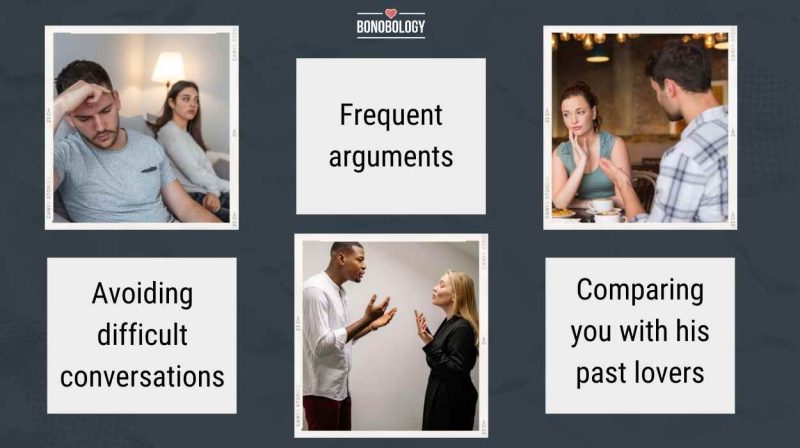Codependency in relationships can be hard to identify, especially for the two people trapped in the toxic cycle. If you look closely, all codependent relationships are characterized by skewed parameters of equality. In such connections, codependent individuals give and give, and the other just takes. The giver and the taker become so closely enmeshed with one another that they lose all sense of individuality.
To break codependency habits, you first need to learn to differentiate between healthy and dysfunctional relationships. And then reclaim control of your individuality. Neither is easy. But with the right support and guidance, it is possible. We’re here to offer you support to overcome codependency in marriage or relationships with the help of psychotherapist Gopa Khan, a mental health professional (Masters in Counseling Psychology, M.Ed), specializing in marriage and family counseling.
Codependent Relationship And Its Signs
Table of Contents
Gopa explains, “In a relationship with such unhealthy behaviors, there is an inherent need to feel constantly loved, validated, and to receive approval from the partner. The codependent person does not have boundaries and cannot separate their needs from their partner. They constantly feel anxious about their partner leaving them and are willing to do anything to please the partner even at a personal cost. They can be termed people pleasers.”

Do you feel like you’re responsible for your partner’s behavior and emotional state or see your relationship as the sole focus of your life? Pay attention to these telltale signs of codependent relationships, according to Gopa:
- No individuality: Lack of individual lives, constantly seeking to be together with one partner, and being overly dependent on the other
- Doing the lion’s share of work: Assuming full responsibility for the relationship, feeling constant guilt for any issues, and always questioning personal efforts to make things right
- Bottling up feelings: Not sharing your grievances and expectations with your partner out of fear of being left alone
- Accepting ill-treatment: Finding ways to explain unhealthy behavior, including physical or emotional abuse, in the name of love
- Constant reassurances: They need way too many assurances to know that they are loved or wanted
- Avoiding conflict: A codependent person avoids conflicts, excuses bad behavior, and prioritizes sustaining the relationship over addressing issues
Examples Of Codependent Behavior
Gopa says, “Individuals who lacked emotional security as children in their own lives often become codependent people in their adulthood. It can also be a learned behavior that the child picked up from either or both of their parents. They are perpetually insecure and look for validation from their partner. When a partner sees signs of codependency, they should make every effort to keep their individual existence intact. Relationships with family members, friends and relatives, career, and hobbies should not be compromised.”
Related Reading: 11 Signs You Are In A Codependent Marriage
Let’s look at some examples:
- Andrew and Tasha, childhood friends turned lovers, exemplify codependency. Andrew transforms into an overprotective boyfriend, dictating Tasha’s choices and suffocating her independence. Initially flattered by his attention, Tasha sacrifices her friendships and passions for the relationship. When Tasha desires autonomy, conflicts arise as Andrew resents her reclaiming control
- Another example of codependency is Dale and Maggie’s 50-year marriage, where Dale constantly relies on Maggie to find his belongings, even shouting for help. Despite the items being easily accessible, Maggie, now 75 years old, interrupts her activities to assist him. Unaware of the codependent nature, Maggie views it as a normal husband-wife dynamic
- Alex and Emmet’s romantic relationship exhibits codependency, with Alex always seeking Emmet’s approval and neglecting personal interests to please him. Emmet, in turn, enables this behavior by relying solely on Alex for emotional validation and decision-making
- Jazz and Ray’s codependent romantic relationship is characterized by Ray sacrificing their ambitions and dreams to cater to Jazz’s desires. Jazz, feeling responsible for Ray’s happiness, avoids conflicts and suppresses his own needs, resulting in an unhealthy dynamic where individual identities are compromised
Can a codependent relationship be saved?
If you relate to the signs and examples, it’s only natural that your mind is swarming with questions right now. “Why am I codependent in relationships?” “How to overcome codependency and live a fulfilled life?” “How long does it take to overcome codependent behavior patterns?” And so on. Before we begin to assuage your concerns, let’s take a moment to understand this: Can such a relationship be saved? Is there hope for you and your partner if your bond has been steeped in codependency right from the beginning?
Addressing whether you can overcome these unhealthy relationship patterns, and be saved, Gopa offers hope but also cautions that such a bond may not always be salvageable. “A codependent relationship can be saved if the person being codependent learns to set healthy boundaries. However, if the relationship is abusive and the codependent person is at the receiving end, then they need to leave. For example, a young client of mine was being blackmailed by her boyfriend and he had released her nude pictures on social media. This was clearly a bad situation for her and the relationship needed to end,” she explains.
There is no magic formula to work on codependency in a relationship or in marriage nor is there any one-size-fits-all answer to this complex dynamic. The odds of success depend on a host of factors such as other underlying issues festering in the relationship, your ability to recognize the unhealthy patterns for what they are, and the willingness of both partners to do the necessary work for effecting change.
8 Ways To Overcome Codependency In Relationships
You may be sacrificing yourself at the altar of your relationship willingly. But this tendency is going to take a toll on you, your partner, and your bond with each other in the long run. However, it is a learned personality trait and you can unlearn it. Gopa says, “To overcome these relationship patterns in marriage or a long-term relationship, one needs to learn to be a ‘healthy narcissistic’ to feel better. That means to embrace themselves as they are, to practice self-love, and let go of being a people pleaser.”
To help you make positive changes, one step at a time, here are 8 ways to overcome codependency in relationships:
Related Reading: How To Build An Interdependent Relationship
1. Explore your past to understand codependent behavior
“The journey of understanding how to work on codependency in a relationship and live a fulfilled life begins with working toward more self-awareness. This is tough work. To be able to let go of the weight of other people’s opinions is not easy for a codependent person since most of their life, they have looked for approval and validation from others,” explains Gopa.
This period of introspection and reflection can be an emotionally overwhelming experience. If you find yourself struggling to make sense of your thoughts and emotions, seeking the guidance of a therapist is highly recommended. If it’s the help you’re looking for, Bonobology’s panel of counselors is only a click away.
2. Acknowledge the denial about codependency in relationships
You cannot resolve an issue unless you recognize and acknowledge it. Once you’ve learned how to be in touch with your emotions and thoughts, use it to spot and analyze problematic behavior in your relationship.
To justify this behavior and tolerate uncomfortable emotions is a bit easy; countering it is the hard part. That’s why many people learn to intellectualize their relationship dynamics over time. It helps them to avoid the uncomfortable truth that their relationship is unhealthy. Being honest with yourself is a critical part of the process if you want to overcome codependency and live a fulfilled life.
3. Learn to let go in order to overcome codependency
To break interdependent relationship habits you have to learn to focus on yourself. Be seen, be heard, and become an equal partner in your relationship. None of this is possible as long as your partner and their needs are the sole focus of your existence. So, you must learn to let go of the need to control, rescue, and please your significant other.
Here are the best ways to start:
- See yourself and your partner as two individuals rather than parts of a whole, this will slowly nurture a secure relationship
- Let go of the need to solve other people’s problems or take responsibility for their actions
- Learn to differentiate between problems that are your own and the ones you adopt to bail out a loved one
4. Establish boundaries with each other
“First and foremost, you must learn to say no. One of the first signs you’re healing from codependency is the ability to identify toxic relationships and set healthy boundaries for yourself and for others. So work toward that,” says Gopa.
- Stop sacrificing your convictions and beliefs to please your partner
- Start letting your partner know what is acceptable and what’s not
- Tell them shirking all responsibility in the relationship is not acceptable
- Verbal or physical abuse should not be tolerated
Boundaries mean standing up for yourself and telling the other person where you draw the line.
Related Reading: How Do You Set Emotional Boundaries in Relationships?
5. Self-care will get you through all the key codependency recovery stages
Codependency anxiety can be all-consuming, leaving little room for you to cater to your own needs and wants. One of the key codependency recovery stages is reversing this course and learning how to love people in a healthy manner. As per the National Institute of Mental Health (NIMH), embracing self-care isn’t just a luxury. It’s a stress-busting, energy-boosting game changer. Believe it or not, even those little moments of self-care sprinkled into your daily routine can create a massive and positive ripple effect. You can start this process by:
- Eating right, sleeping well, exercising, and taking care of your body
- Becoming aware of your feelings, thoughts, and needs, and prioritizing fulfilling them
- Making social connections, spending time with friends and family, and taking part in activities that make you happy
- Taking some me-time to wind down emotionally
- Being open to trying new things to see what truly elevates your sense of mental wellness
6. Learn to be on your own
The fear of being alone is one of the underlying triggers for codependency. To overcome codependency in your interdependent relationship, you need to face your deepest fears. Learning to be on your own is important for reclaiming your individuality. Here are the first two steps to get there:
- Take some time off from the relationship to be alone and to gain a sense of self. Try to enjoy your own company
- Pursue an individual hobby, go out for walks by yourself, and try therapeutic activities like painting or pottery-making to be at peace with the idea of being alone
Eventually, you will learn to reclaim your individuality and become a wholesome person who doesn’t need someone else to complete them.

7. How to overcome codependency? Don’t be too hard on yourself
Another classic codependent personality trait can look like assuming responsibility, blame, and guilt for everything that goes wrong in your relationship and your partner’s life. Except you’re not responsible for your partner’s life; you’re only responsible for your part in the relationship. So, learn to let go of the “What more could I have done?,” “Why wasn’t I able to prevent this?” or “How can I make this work with no help from my partner?” attitude.
When you’re dealing with unhealthy behavior patterns stemming from complex trauma, recovery is neither linear nor swift. Be compassionate and kind to yourself. Research indicates that practicing self-compassion enables us to have a deeper connection with our true selves. Self-compassion contributes to a growth mindset and a clearer state of mind which paves the way for more informed decision-making. So, celebrate small milestones and commit yourself to do the necessary work to emerge on the other side stronger, no matter how long it takes.
Related Reading: 8 Things That Ruin Relationships And You Don’t Even Realize it
8. Prepare yourself to move on
Once you’ve gone through the churn of codependency recovery stages, take stock of your relationship. Free yourself from the guilt that by reclaiming your life, you may be putting your partner in jeopardy. The hard truth is that no one is indispensable. Your partner was getting by just fine before you came along, and they will manage in the future too. Even in his book, Love is a Choice, Dr. Robert Hemfelt, licensed marriage and family therapist, says that saying goodbye is one of the most important stages of recovery from codependent relationships.
Key Pointers
- In codependent relationships, there is an inherent need to feel constantly loved and validated, and to receive approval from the partner
- Taking on too much responsibility, having no individuality, and avoiding conflicts are some of the signs of a relationship that is codependent
- Acknowledging the relationship for what it is, setting boundaries, being gentle with oneself, and self-care are some of the ways to overcome a codependent relationship
It is possible to free yourself from codependency in relationships. While these tips can help you make a start in the right direction, making this transition on your own can be difficult. If you’re in a codependent relationship and want to make a change for the better, working with a trained professional is your best bet.
This post has been updated in June 2023.
FAQs
Codependency refers to relationship dynamics where one partner’s emotional and physical needs dominate and the other goes above and beyond to accommodate them.
No, codependency is an acquired personality trait – often as a coping mechanism to deal with difficult life experiences – and can be corrected with the right guidance.
Codependency is the very definition of dysfunctional relationship dynamics. These are unhealthy and can become toxic to the extent that they start affecting one or both partners’ mental well-being.
Addiction or substance use disorder is just one of the many factors that may lead to the manifestation of such behavior. But it can be seen in any dysfunctional relationship and can be traced back to childhood experiences.
Overcoming codependency is often a long-drawn-out and emotionally taxing process. It is best to seek help from a professional to guide you through the process.
6 Harmless Mistakes In A Relationship That Are Actually Harmful
Your contribution does not constitute a charitable donation. It will allow Bonobology to continue bringing you new and up-to-date information in our pursuit of helping anyone in the world to learn how to do anything.

